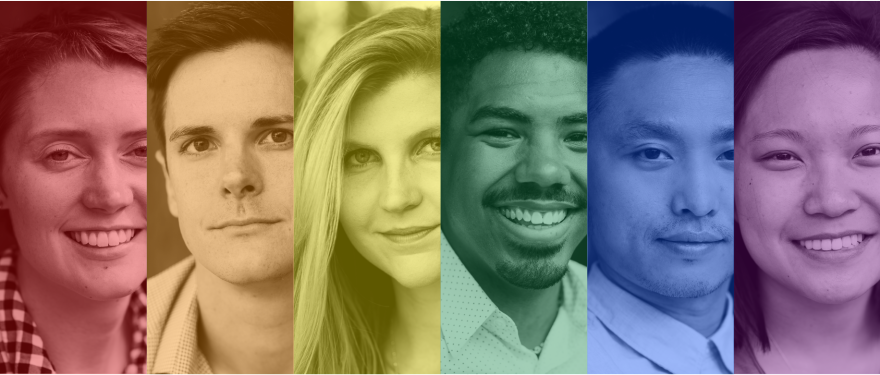Today is National Coming Out Day, and HBS has been participating in events in celebration of the LGBTQ+ community all week long. Some students came out before business school, and some students wait until they arrive on campus. Many participate in events and choose to keep their LGBTQ status private. We accept everyone in any stage of their coming out process and hope that you will be inspired by the stories of these students as they continue to grapple with a world that is not always accepting of who they are.
Here, students share their personal stories through the National Coming Out Day portrait project series organized by the PRIDE club. Visit our Instagram @hbsadmissions for more information and fun facts about the LGBTQ+ community here at HBS.
Ronnie Wimberley - Class of 2021
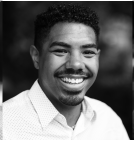
In almost every one of the 11 schools I enrolled in growing up as a military child, I was bullied about my sexuality. Before my peers even understood what sexuality was, they noticed deviations in my gender expression and performance and sought out ways to violently stamp those deviations out of me. Coming home to my mother in tears day after day, she would try and console me: “Kids can be cruel.”
But eventually, I came to the hopeless conclusion that maybe my peers were right; maybe something about the very core of my existence simply didn’t belong.
As I got older, I began to understand that my peers so desperately wanted to stamp out my differences because it was a painful reminder of all the ways they themselves had had to shave down their own rough edges to fit in.
And even though confidently expressing my gender-nonconformity and queerness intimidated my bullies, it also helped others find peace in who they are and who they could be.
In this realization, I found my superpower. We all deserve the chance to find peace in who we are, and as we find our own peace, we unlock that peace in others.
Leo Claassen - Class of 2020
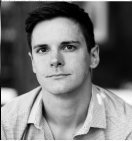
"Mom, Dad - I'm in love with Ben. He loves me too. I'm gay."
Simple. These words set me free from the pressures I put on myself. To lower my voice. To avoid effeminate classmates. To go on dates with women in hopes of 'making it work.' To ignore my feelings for Ben. To binge drink and feel less.
It took me years to accomplish what my parents did that evening: Accepting me for who I am.
I am enough.
Alex Xu - Class of 2020
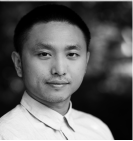
I was deeply in the closet for the first 20 years of my life. Then I studied abroad in London. I consciously immersed myself in one of the most diverse and accepting cities in the world, and it was within this environment where I learned and adopted the kind of self-acceptance that I never thought I could obtain about my sexuality. The day I returned home to Chengdu for the summer, I took my parents out for a late coffee, resolved to share with them my story. It was a long coffee date, to say the least. I stalled for 3 hours before I could finally gather the courage to tell them that I was gay.
As I reflect on why I was so adamant about making an active effort to come out to my parents, I attribute much of my courage to the formation of self-acceptance. I view my self-acceptance as the deep and fundamental belief that my sexuality does not make me less of a person than anyone else. It is the realization that I am not always responsible for making everyone else feel comfortable. It is the belief that I can be a better person by being true to myself and to the world.
Once I was able to fully accept myself, coming out almost seemed like an “easy” question about tactics.
Amelia Elverson - Class of 2020
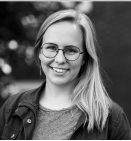
I was never “in the closet”. In elementary school, I had crushes on boys just like all my friends. Throughout early adulthood, I loved a wonderful man. I never questioned my sexuality; I didn’t even think about. It didn’t occur to me that I could possibly be gay until I was falling in love with my best friend, a woman.
Coming out at the age of 25 was, honestly, uneventful. Upon hearing about my new girlfriend, my parents simply said they loved me and that they noticed I’d been happier recently. They welcomed her into our home and family without hesitation. My friends listened to me when I needed them, and cracked jokes when I needed those too. My support system has allowed me to explore my identity without fear or shame, and I am so lucky for that.
My coming out story is still unfolding. I am thankful I live in a place where I can be myself, where I can love who I want and do so openly, where I can bring my whole self to work, and where I can explore with abandon. I hope someday this is true for everyone.
Cassidy Tanner - Class of 2021
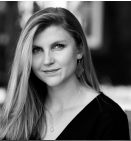
Coming out to my family before starting my first job went about as poorly as expected. Raised in the LDS church and a conservative business culture, my dad forbade me from telling anyone at work because it would surely "ruin my career."
For a while I listened, dodging and lying to avoid discovery. When I did come out, the alarming frequency of homophobic jokes and questions like “how does your sex life work?” in the office made me fear my dad was right.
Having disregarded his advice, my relationship with my family was strained – for years we could only talk by pretending that the rainbow elephant in the room didn’t exist.
Two years later, I stood in a room with over one hundred of the most senior LGBTQ leaders in business, having helped create the Alliance - the world’s first “Gay Davos” and proof that my queerness could be not a career-ruining burden, but a gift.
The real gift, though, came a year later in an unexpected FaceTime call from my dad. I answered, glimpsing his face only briefly before he flipped the camera to reveal the reason for the excited call – outside his office was a brand-new rainbow flag.
Christina Byrd - Class of 2021
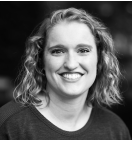
“Are you pregnant?”
My mom asked this in an attempt to help me get out the words I was trying to say, but, little did she know, those words were “Mom, I’m a lesbian.”
We laugh about this call now, but her guess of why I was calling crying and confused speaks to how deeply I had buried my identity from myself and others.
I was unable to make this connection because of how deeply Christianity - a demonizing, demeaning version of Christianity - ruled our lives.
I grew up in a Memphis suburb, went to a Christian school, and attended church three times a week. Being successful in this community meant fitting the mold.
Being gay was simply not an option. I didn’t know anyone who was gay, and even if I did, they would have had no reason to be visible to me, since I was just another straight, southern Christian.
I realized while writing these words that there are many people in my life I’ve never come out to, so for anyone reading this I haven’t told: I’m a lesbian, and while I once hid that from myself and others, I never will again.
Mindy Huynh - Class of 2021
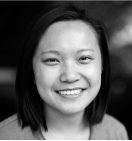
“Girl power,” she finally mustered as she awkwardly fist pumped me. I almost spat out my burrito.
“I mean this in the nicest way possible, but honestly, nobody cares. You are who you are so just do you.”
“Model and projections look fine. So! Are you dating anyone!? How is it like…?”
These are snippets of the memorable reactions I’ve received to-date on my coming out. From college roommate to childhood friend to most recent boss, they’ve all made my coming out less scary, much more enjoyable, and quite frankly, surprisingly entertaining.
My coming out is very much still present tense, whether that’s to the individuals I have yet to meet or you, the stranger, friend, or classmate, reading this now. Regardless, I am grateful to everyone in my life who has created a safespace for me to find and be myself. Every gesture matters – including you taking the time out to learn my story – so from the bottom of my heart, “thank you”.
Michael Rabimovich - Class of 2021
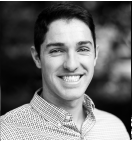
My coming out journey started before I was born. In 1992, my family emigrated from Moscow, Russia to the U.S. seeking asylum for political persecution. I was nervous to tell my parents because our Russian community tends to engage in gossip and didn’t have the most positive attitude towards gay people – even our extended family in Moscow supports anti-LGBT measures. Immigrant families like mine typically need to conform and adapt to survive in a new society, so I didn’t make waves, especially with something like being gay.
Changing public perception eventually gave me the courage to come out to my friends and parents. And it turned out well. My father expressed that he wished I’d told him sooner, so that I wouldn’t have had to suffer with a secret for so long. My mother was more inquisitive – she asked me if there’s a secret handshake to figure out who else is gay!
I’m extremely grateful for my family’s response, especially when some of my friends haven’t been so fortunate. I’m now a supporter of the Russian LGBT Network, an organization with goals of rallying public support for the elimination of discrimination based on sexual orientation.
Kate Grosch - Class of 2020
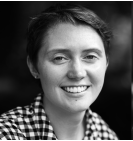
I came out when I was 13, and it wasn’t a big deal at all.
I didn’t agonize over it. No one reacted particularly positively or negatively. I don’t even remember any specific moment – it was just suddenly a thing about me that was generally known. When I started dating my first girlfriend a few months later, we held hands at lunch and kissed awkwardly at school dances just like any other 8th grade “couple.”
How strange. How amazing. How…ordinary.
I dream of a world where all coming out stories are as boring as mine. I aspire to be a pioneer of ordinariness, the first of a generation of un-inspiring queer awakenings. I hope my kids don’t even think to ask me how I came out, because they just don’t care.
Because it’s boring. And that’s how it should be.

